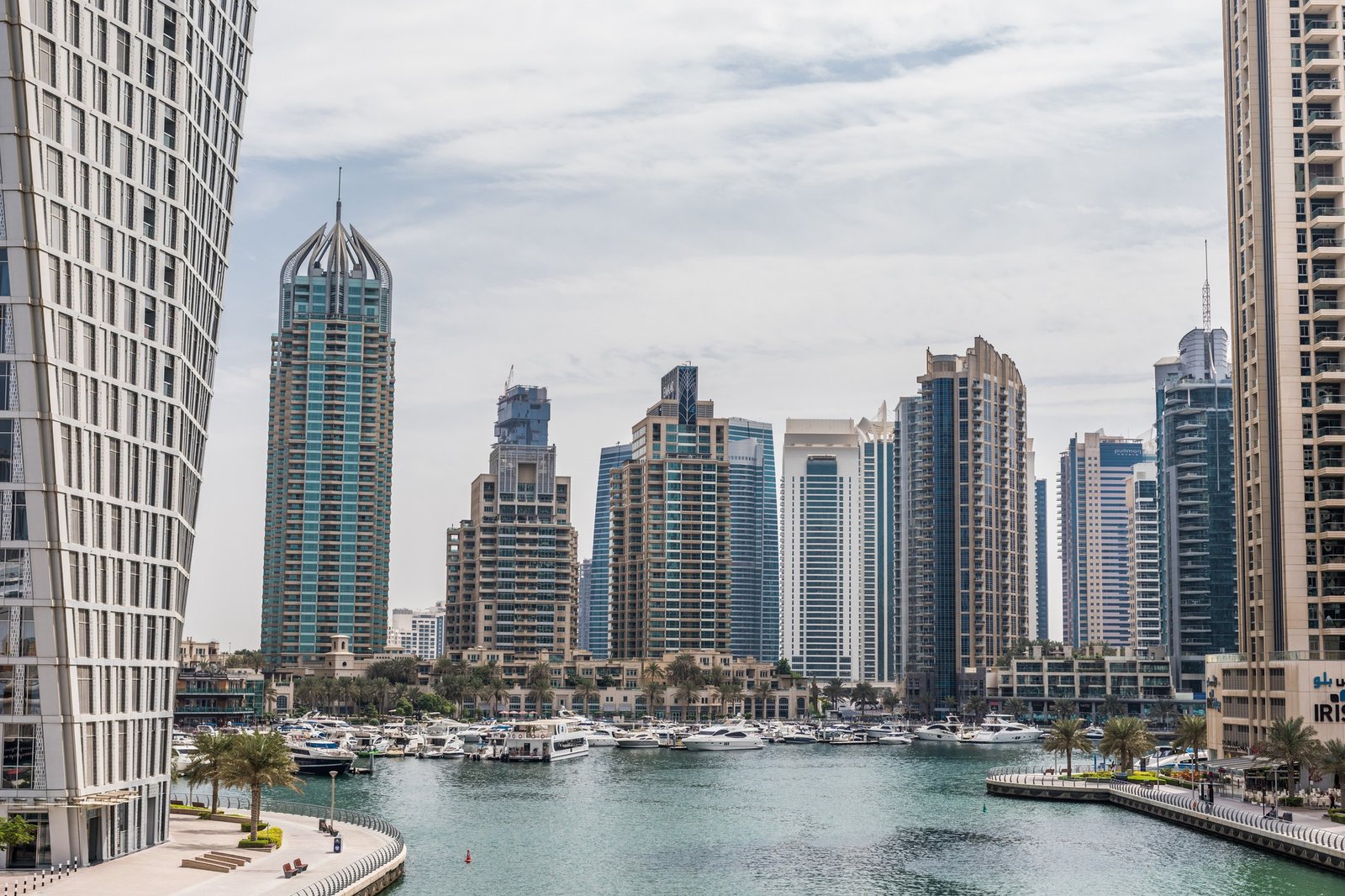
With its free zones, Dubai and the UAE have become attractive to foreign entrepreneurs establishing business-structures there. Operations can be established in any free trade zone within the emirate or on mainland it administers. Difference between incorporation in free zones, which are isolated areas or islands of special privileges, and company registration in Mainland UAE is that when a firm is registered anywhere within mainland Dubai, it may participate in public tenders, government agreements, and private competition without restriction.
Right here, the federal Law on General Authority issued from time to time by the Emirate of Dubai in consultation with its Economic Development Department cannot give clear specifications that would satisfy all possibilities. That has never happened and will not happen. DED may issue some implementing measures or guidelines, as memory fails me, but these always fail because they aren’t binding.
Regulatory and Organizational Structure
Pattern for Mainland UAE incorporation process follows Federal Law of Onshore Companies as well as Emirate-level regulations. The DED is treated as the administrative authority authorized to issue permits, maintain registers, and check with proprietors in their business-operations on how things are going (or not going). There have been significant changes in the policy on foreign ownership in recent years. Previously, foreign capital-holders needed to have an Emirati as a majority shareholder. From 2021, a major shake-up means that nearly all sectors are now open to 100% foreign ownership.
Nevertheless, sensitive areas – defense and banking, etc. – still maintain specific Emirati shareholding restrictions. Most others almost need no authorization at all for ownership, and therefore changes such as this have made selecting to register in mainland Dubai the first choice of international businesspeople, with its avoidance of such potential stumbling blocks.
Key Features in Mainland Company Registration
- Market Admission: Unlike facilities in free zones close to where they function, mainland UAE-businesses can serve an extensive area and even outside of the city without geographic limits.
- Ownership: Mostly, full foreign participation is now allowed. Three kinds of activity, professional, industrial, and trading, each one needing a separate UAE mainland license from the DED.
- Premises Requirement: To complete the process of forming a firm in mainland UAE, physical premises must be rented. Then they are registered through Ejari.
- Regulatory Oversight: Above national law and Emirate decrees, and from where there is one policy applied at a governmental level (implementationist doctrines).
Mainland company setup in Dubai: Procedures to be done
Create an account on the Dubai Trade Portal, and complete randomly generated account number and vehicle plate number. You are now registered. You may copy entry into the vehicle legally required for trading at many locations throughout the Emirate. Perform nationality checks implemented on launching.
- Initial Authorization: Application submission with business-activities details, location, and shareholder information to receive a provisional clearance from the DED.
- Name Registering: Name must conform to the normative points mentioned in regulations and shouldn’t look problematic from a datum attitude.
- Association Memorandum Drafting and Lease & Ejari Registration: Submission of the LSA agreement, if applicable, needs to be acknowledged by an authorized document at the UAE notary’s room while putting down an MoA.
- Lease & Ejari Registration: Evidence by the Emirates Islamic Affairs Department of a fixed place of habitation.
- Applying for a Permit: Once all paperwork has been approved, the relevant UAE mainland registers your firm with the DED.
- Task After Registering: It’ll involve (not in any particular inner order) VAT registration with the Federal Tax , establishment card from the MHRD Ministry of Human Resources Development, and opening a business-account.
Compliance on an Ongoing Basis
- Renewals: Your business-license will need to be renewed annually along with evidence of the latest lease.
- Corporate Governance: Register of Members, shareholder meetings, and directors’ duties.
- Accounts: Must turn in financial statements annually; any off-stage/large-scale structure will require an audit annually as well.
- Employment Law: It should involve abiding by regulations for UAE labor, creating employee visas, and taking Emiratisation national jobs if your firm intends to hire in the future or does now.
- Filing with Regulators: Sending reports back to the Abu Dhabi Chamber of Commerce and anyone else who might be interested in them.
Further Expenses after Dubai Mainland registration
- Annual Charge: A flat-level fee is imposed on all licenses to cover the constant and ongoing payments.
- Corporate Governance: Register of Members, shareholder meetings, and directors’ responsibilities.
- Financial Statements: All firms have to submit annual accounts; in the free markets, it’s both right and mandatory.
- Employment Law: In correspondence with UAE labor laws and government’s normative points for visa holders or Emiratisation.
Cost of Mainland company formation in UAE
Cost varies by Emirate, whether it’s one site or many, and the activity. Bear in mind that one should always remember next-described.
- Protection for your name in commerce and the preliminary approval.
- Authenticating the MoA or LSA agreement.
- Rental payments and Ejari registration.
- Receiving the commercial license.
- Workplace IDs for your workers (labor establishment cards).
- Advisory fees.
While not as cheap as some free zones, UAE mainland organization incorporation allows for broader planning and operational strengths. One must bear in mind yearly permit renewal costs and leasing your office space in the long-term equation.
Strategic Privileges of a Mainland Operation
- No Limits: All of the Emirates grant full working privileges and markets both domestic and international for businesses.
- Credibility: State banks, public services, and private partners will usually be more dependent upon real things, not make-believe like in free zone companies.
- Flexibility: Each has its own method to respond to different sectors of profession, industry, and commerce; big or small, their licenses are as diverse as those whom they serve.
Following reforms, foreign investors in most industries may now enjoy complete control. This line has become highly competitive, as it’s an “A license.”
Conclusion
Mainland UAE incorporation is an excellent way to pave the path for your long-run business-projects. While procedures are more strict than those in free zones, mainland licenses offer unique advantages – fully-covering accessibility to the domestic market, improved prestige at home and abroad, and chances for foreign ownership justify extradition requirements. Especially for those attracting Mainland Visa Services, registration means joining the UAE’s economic system while still following rules of international governance.
How to register a mainland company in the UAE?
Whole procedure is implemented through Department of Economic Development (DED). It includes initial approval, reserving the trade name, drafting Memorandum and Articles of Association, registering premises with Ejari, and finally issuing a UAE mainland license.
How much does it cost to register a company in Dubai mainland?
Total UAE mainland organization formation cost depends on business-activities type, emirate, and location: it commonly includes government and notary fees, rent, and compliance-related expenses.
Can a foreigner register a company in the UAE?
Yes. Following new regulations, 100% foreign ownership is permitted in most fields (subject to approval by government departments). Certain strategic sectors may still require Emirati participation.
What is the difference between mainland and freezone in the UAE?
Mainland structures are licensed in the UAE by the DED and might operate nationwide without restriction. Free zone structures are confined to their zones or international markets. They often receive tax breaks but don’t have any access back into domestic market-space.







